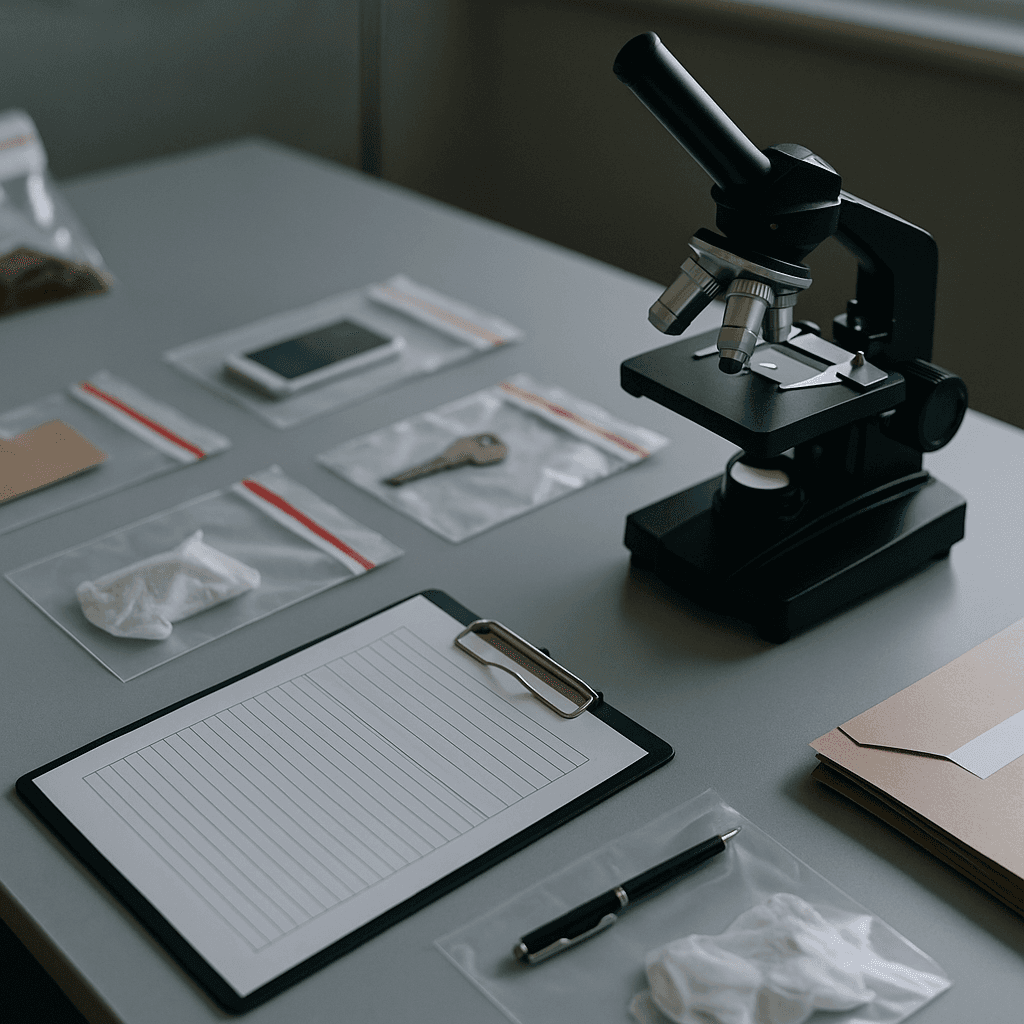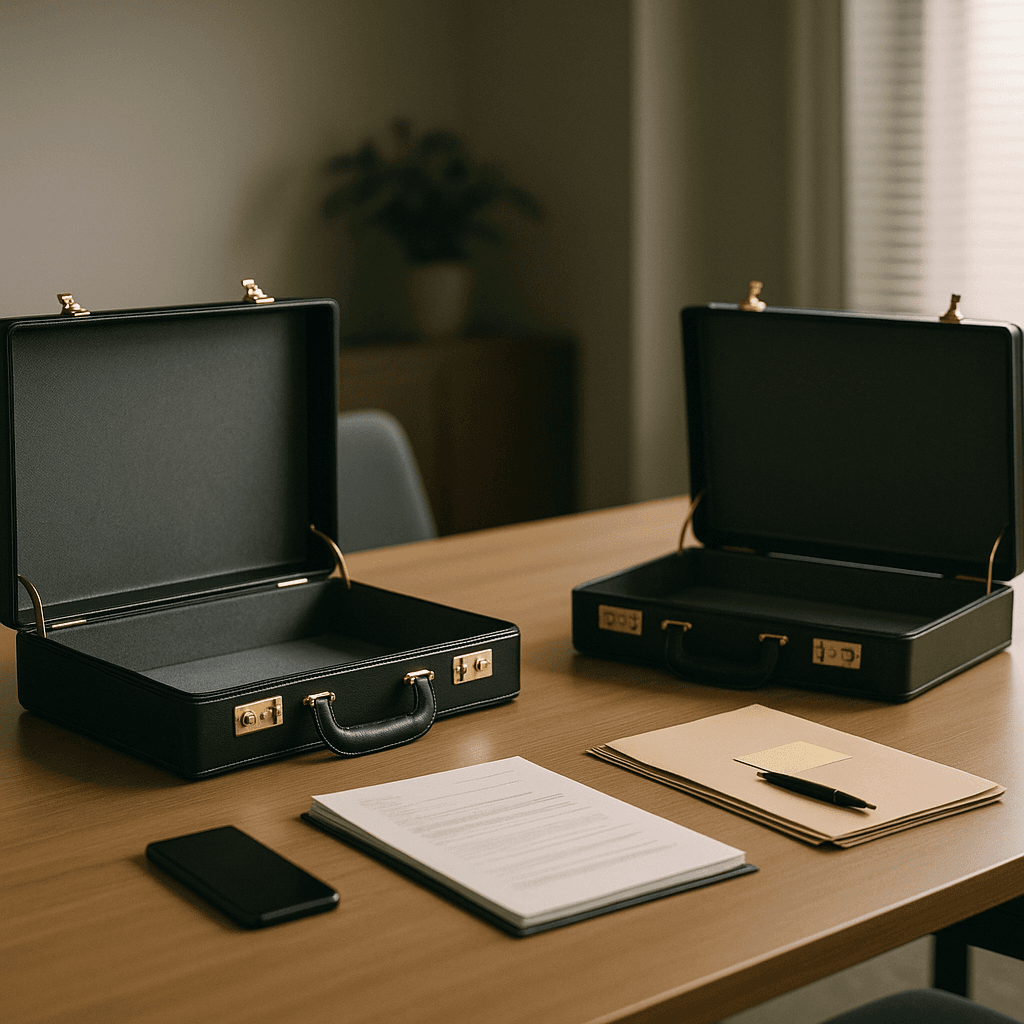
How Contingency Fees Work – and Why They Benefit Clients

Understanding Contingency Fees in Personal Injury Cases
For many accident victims, the idea of hiring an attorney can seem intimidating—especially when they imagine expensive upfront costs or hourly rates. But in personal injury law, most attorneys work on a contingency fee basis, a structure designed to make legal representation accessible regardless of a client's financial situation.
Under a contingency fee agreement, you don't pay your attorney unless your case is successful. Their payment is a percentage of the settlement or verdict you receive, meaning they only get paid when you do. This system aligns the attorney's interests with yours: both parties are motivated to achieve the best possible outcome.
This approach allows injury victims to focus on healing rather than worrying about legal expenses. It also ensures that anyone, regardless of income level, can pursue justice after an accident. A skilled personal injury lawyer takes on the financial risk of the case, covering costs such as court filings, expert witnesses, and investigations until the matter is resolved.
How Contingency Fees Fit Into the Legal Process
Contingency fees come into play from the very first meeting. During your initial consultation, your attorney will evaluate your case's merits, outline possible strategies, and explain how payment works. Most clients appreciate that this first meeting is typically free—allowing them to explore their legal options without commitment or pressure.
This initial discussion also provides clarity about what lies ahead. The lawyer will describe the stages of a personal injury claim—from gathering evidence to negotiating a settlement—and how legal fees will be handled at each point. Understanding these steps early helps you feel more in control of the process.
Every personal injury claim follows a timeline with key milestones: investigation, negotiation, and, if necessary, litigation. Grasping how these stages unfold makes it easier to see why a contingency fee structure works so well for clients. It ensures that the attorney's compensation directly depends on navigating the case efficiently and successfully. This connection between preparation, progress, and outcome mirrors the natural rhythm described in the timeline of a personal injury case from accident to settlement, where each stage builds toward fair resolution.
The Role of Evidence in Strengthening Your Case
Because your attorney's fee depends on winning, they have a vested interest in gathering and presenting strong evidence. This includes everything from accident reports and witness statements to medical records and expert opinions. Effective documentation demonstrates liability, establishes causation, and supports the damages being claimed.
The strength of your evidence can dramatically influence both the likelihood of success and the value of your settlement. Attorneys on contingency often invest heavily in evidence collection—hiring investigators, reconstructing accidents, or consulting with medical professionals—to ensure your claim is as strong as possible.
This commitment underscores why organized, detailed proof can make or break a claim. It's not just about what happened; it's about what you can prove. That reality reinforces the importance of the principles highlighted in evidence that can make or break your claim, where preparation and precision determine outcomes.
Discovery and Legal Strategy
If your case proceeds to litigation, your attorney's work intensifies during discovery, the phase where both sides exchange evidence and gather testimony. Depositions, document requests, and expert reviews form the backbone of this stage. Attorneys working on contingency are especially motivated to ensure discovery is thorough because every uncovered fact has the potential to strengthen the case—or reveal weaknesses that need to be addressed.
Discovery requires both strategic skill and patience. It's where preparation meets proof, and it often leads to settlement discussions as the facts become clearer. Since your lawyer's compensation depends on success, they are driven to build the most compelling argument possible, ensuring your side of the story is fully supported by documentation and testimony.
Understanding this stage helps clients see how crucial it is to have an attorney who is both detail-oriented and resourceful. The significance of this process aligns with what's outlined in what happens during discovery in a personal injury lawsuit, where discovery often determines whether a case settles or proceeds to trial.
The Value of Strong Medical Documentation
Medical evidence plays a central role in determining case value—and your attorney will work closely with doctors and specialists to document every aspect of your injuries. Detailed medical records not only prove the extent of harm but also connect it directly to the accident. This connection, known as causation, is what justifies compensation for treatment costs, pain, and lost income.
In contingency-based cases, attorneys typically cover the cost of obtaining medical reports, expert opinions, and future care assessments until the case resolves. They do this because medical documentation is often the most persuasive evidence of all—it quantifies the physical and emotional impact of the accident.
Well-maintained medical records are especially powerful in negotiations and trials, ensuring that the value of your suffering and recovery is properly recognized. This reinforces the importance of the medical documentation that supports your claim, where precision and consistency can significantly increase the strength of your case.
The First Meeting and Setting Expectations
For many clients, the first meeting with an attorney is when they realize how accessible legal representation truly is. During this consultation, the attorney explains how contingency fees remove financial barriers, making it possible to pursue justice without upfront costs. Clients also learn how communication, updates, and next steps will work throughout the case.
Attorneys may request relevant records—such as medical documents, police reports, and correspondence with insurers—to start evaluating your claim immediately. They'll answer your questions about timelines, evidence collection, and potential outcomes, ensuring you leave the meeting with realistic expectations and peace of mind.
This collaborative beginning creates a strong foundation for the attorney-client relationship, reflecting the transparency and professionalism discussed in what to expect during your first meeting with a personal injury attorney.
Why Contingency Fees Benefit Clients
The contingency fee model benefits clients in multiple ways. First, it removes financial risk—you pay nothing unless your attorney wins your case. This approach also incentivizes your lawyer to pursue the maximum compensation possible since their fee is directly tied to your recovery.
Additionally, it opens the door to high-quality legal representation for those who might otherwise be unable to afford it. Injury victims already face medical bills, lost wages, and emotional strain; contingency fees ensure that justice isn't limited to those with deep pockets.
Finally, this system builds trust. You and your attorney share the same goal: securing the best possible outcome. When your lawyer's success depends on yours, you can be confident they are fully committed to your case's success.
The Bottom Line
Contingency fees represent a fair and empowering system for accident victims. They allow people to seek justice without the burden of upfront legal costs while ensuring that attorneys remain fully invested in achieving the best results.
From the first meeting to the final settlement, this structure fosters collaboration, trust, and accountability. Combined with strong evidence, organized medical documentation, and strategic discovery, contingency representation transforms complex legal processes into attainable justice.
For anyone considering a claim after an accident, understanding how contingency fees work is the first step toward recovery—and a reminder that the law is meant to protect, not intimidate.
Blog Posts:

The Role of Expert Witnesses in Injury Litigation
Why Expert Witnesses Matter in Personal Injury Cases In personal injury litigation, facts alone are often not enough. While evidence like medical records, photographs, and witness statements paint part of the picture, juries and insurance companies frequently need context and explanation to understand the full scope of an injury and its impact. This is where expert witnesses play a pivotal role. Expert witnesses are professionals—often doctors, engineers, economists, or accident reconstruction specialists—who provide testimony based on their specialized knowledge. Their objective is not to advocate for one side but to clarify complex issues that require professional interpretation. In many cases, their opinions help bridge the gap between evidence and understanding, making them critical to achieving fair compensation.

How Insurance Companies Evaluate Injury Claims
How the Evaluation Process Really Works When you file a personal injury claim, the insurance company begins a process that is anything but simple. Behind every offer or denial, there's a calculated evaluation designed to protect their bottom line. Insurers use data-driven methods, past claim outcomes, and internal guidelines to assess how much—if anything—they believe your case is worth. The goal of the insurance adjuster is straightforward: to settle your claim for as little as possible while closing the file quickly. They'll review your medical records, accident details, and even statements you've made to determine liability and damages. The more organized and detailed your claim presentation, the harder it is for them to undervalue it.

The Dangers of Handling a Personal Injury Case Without Legal Help
Understanding What's at Stake After an accident, it's natural to want to resolve things quickly. Medical bills begin piling up, your work may be disrupted, and insurance adjusters often seem eager to "help." Many people believe they can handle their personal injury claim on their own—especially if the situation seems straightforward. But personal injury law is complex, and even minor missteps can lead to significant financial loss. Without professional guidance, you may underestimate your claim's value, miss critical deadlines, or make statements that insurers later use against you. The legal process is designed to protect both sides, and insurance companies have experienced professionals working to limit payouts. Without an equally skilled advocate on your side, you're at a clear disadvantage. That's why consulting a personal injury lawyer early in the process is often the difference between fair compensation and a costly mistake.

When Should You Switch to a Different Injury Lawyer?
Knowing When It's Time for a Change Choosing the right attorney after an accident is one of the most important decisions you'll make in your recovery journey. However, not every lawyer-client relationship is a perfect fit. Sometimes, despite your best efforts, you may realize that your current representation isn't meeting your expectations. Whether it's poor communication, lack of progress, or a sense that your case isn't being handled effectively, recognizing when to switch attorneys can make all the difference in the outcome of your claim. Switching to a new personal injury lawyer doesn't mean starting over from scratch—it means taking control of your case and ensuring it receives the attention and effort it deserves. Understanding what to expect from your legal representation can help you identify the warning signs that it might be time for a change.
Get an agent on the line in seconds
Responsive
Legal Assistance
Our personal injury attorneys advocate for the funds necessary to cover bills, secure medical treatment, recoup lost wages, and provide compensation for your pain and suffering.
Are you facing unfair treatment from the insurance company?
Do you know the value of your case?
Is the insurance company asserting that the accident is your responsibility?

We'll get back to you ASAP.
Get Your Free Consultation
You Pay Nothing Unless We Recover Compensation For You
